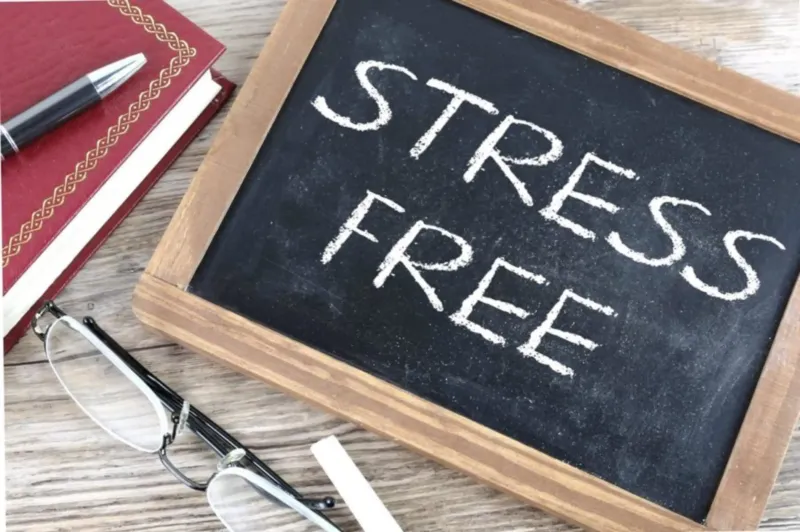
1. What is stress?
Stress is the body's response to any demand. It is a normal reaction that occurs in response to various situations, such as an upcoming test or a job interview. The stress response is the body's way of preparing to meet these demands. It is a natural and necessary part of life. However, when the stress response is constantly activated, it can lead to problems. Chronic stress can increase the risk for various health problems, such as heart disease, high blood pressure, and depression.
2. The history of stress
The history of stress begins with the early work of Hans Selye, who defined stress as "the non-specific response of the body to any demand for change." Selye's work led to a greater understanding of the body's stress response and its role in health and disease.
In the 1950s, Selye described the General Adaptation Syndrome, which describes the three stages of the body's stress response: alarm, resistance, and exhaustion. The alarm stage is characterized by a sudden release of stress hormones, such as adrenaline and cortisol, which prepare the body for action. The resistance stage is characterized by the body's efforts to adapt to the stressor and return to normal. The exhaustion stage is characterized by the body's inability to continue to adapt to the stressor and results in physical and emotional exhaustion.
Selye's work helped to establish the field of stress research and led to the development of stress management techniques, such as relaxation and biofeedback. Stress research has since expanded to include the study of psychological and social factors that contribute to stress. Today, stress is recognized as a major factor in a wide variety of health conditions, including heart disease, high blood pressure, stroke, and cancer.
3. The different types of stress
physical stress, emotional stress, mental stress, and social stress.
4. The causes of stress
There are many causes of stress, including work, family, and personal problems. Other causes of stress can include money troubles, health problems, and relationship issues. Stress can also be caused by major life changes, such as a divorce or the death of a loved one.
READ MORE >> The Ultimate Guide to Effective Skin Care: Tips, Techniques, and Products for a Healthy and Radiant Complexion
5. The symptoms of stress
1. feeling overwhelmed or out of control
2. feeling irritable or angry
3. feeling anxious or worried
4. feeling down or depressed
5. feeling tired or exhausted
6. having difficulty concentrating
7. feeling like you can't cope
8. feeling restless or on edge
9. having difficulty sleeping
10. experiencing physical symptoms such as headaches, sweating or a racing heart
6. The effects of stress
The effects of stress can be short-term, like a headache or an upset stomach. They can also be long-term, like high blood pressure or anxiety.
7. The treatment of stress
The most effective treatment for stress is to identify the source of the stress and to remove it from your life. If the source of stress cannot be removed, then you must learn to manage it in a healthy way. This may involve seeking professional help, making lifestyle changes, or both.
8. The prevention of stress
The best way to prevent stress is to live a healthy lifestyle. This includes eating a nutritious diet, exercising regularly, and getting plenty of rest. Additionally, it is important to avoid unhealthy habits such as smoking and excessive alcohol consumption.
9.Ways To Reduce Stress
-Remove yourself from stressful situations
There is no one-size-fits-all answer to this question, as the best way to remove yourself from a stressful situation may vary depending on the individual situation. However, some tips to help reduce stress in your life may include:
-Identifying your personal stressors and triggers, and making a conscious effort to avoid or minimize exposure to them
-Practicing stress-relieving methods such as deep breathing, meditation, or yoga
-Exercising regularly
-Getting adequate rest and sleep
-Eating a healthy diet
-Spending time with supportive family and friends
-Deep breathing
When you are feeling stressed, one of the best things you can do is take a few deep breaths. This will help to slow down your heart rate and bring some calm to your body.
-Yoga
1. Yoga can help to reduce stress by promoting relaxation and reducing muscle tension.
2. Yoga can help to improve circulation and increase energy levels.
3. Yoga can help to improve breathing and promote a sense of well-being.
-Meditation
1. Meditation can help to reduce stress by providing a calm and relaxing environment.
2. It can help to clear your mind and focus on the present moment.
3. It can help to improve your breathing and reduce anxiety.
4. It can help to increase your energy levels and improve your mood.








Showing 0 verified guest comments